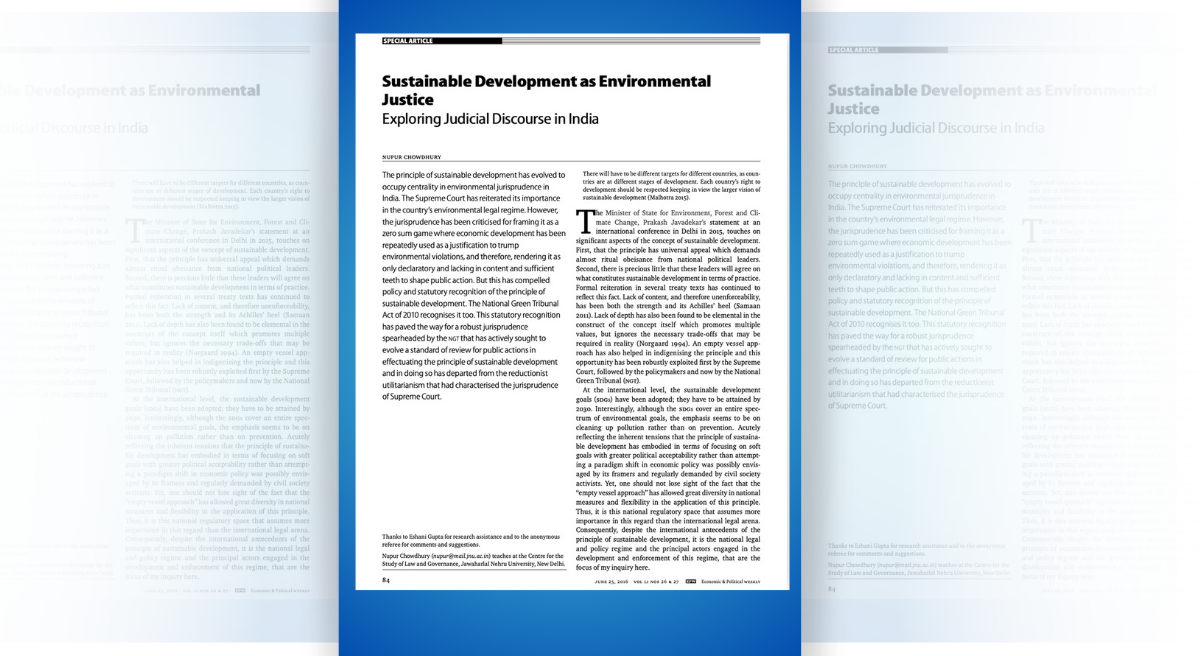Sustainable Development as Environmental Justice: Exploring Judicial Discourse in India
The principle of sustainable development has evolved to occupy centrality in environmental jurisprudence in India. The Supreme Court has reiterated its importance in the country’s environmental legal regime. However, the jurisprudence has been criticized for framing it as a zero sum game where economic development has been repeatedly used as a justification to trump environmental violations, and therefore, rendering it as only declaratory and lacking in content and sufficient teeth to shape public action. But this has compelled policy and statutory recognition of the principle of sustainable development. The National Green Tribunal (NGT) Act of 2010 recognizes it too. This statutory recognition has paved the way for a robust jurisprudence spearheaded by the NGT that has actively sought to evolve a standard of review for public actions in effectuating the principle of sustainable development and in doing so, has departed from the reductionist utilitarianism that had characterized the jurisprudence of Supreme Court.
